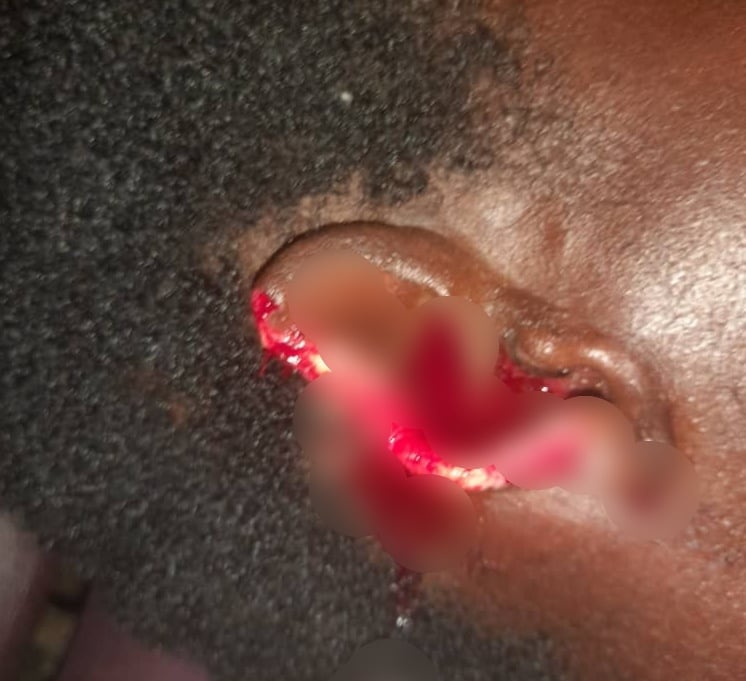This disturbing incident of domestic violence, which took place in Wonkayaw, a community within the Dambai township of the Krachi East Municipality in Ghana’s Oti Region, highlights the devastating consequences of familial conflict. 46-year-old Cecilia Fordjour alleges that her husband, Emmanuel Addai, bit off her ear during a violent altercation. The couple’s contrasting accounts of the incident further complicate the situation, underscoring the need for a thorough and impartial investigation.
According to Madam Fordjour, the attack occurred after she had prepared a meal for the family. As she was tending to their children and preparing to serve her husband, who had just returned from a funeral, he allegedly demanded she leave the house without providing any explanation or provocation. This unexpected and unreasonable demand quickly escalated into a physical altercation, culminating in the horrific act of Mr. Addai biting off his wife’s ear. Beyond the physical pain and disfigurement, this act represents a profound violation of trust and safety within the family unit.
The severity of the injury is compounded by the delayed medical attention. Upon arriving at a private health facility, KOPAH Clinic, with the severed ear, medical professionals informed Madam Fordjour that reattachment was no longer possible due to the elapsed time. This detail underscores the critical importance of immediate medical intervention in such traumatic injuries and the potential for irreversible damage caused by delays. The loss of her ear represents not only a physical injury but also a potential psychological scar, impacting her sense of self and well-being.
The contrasting narratives presented by both husband and wife add another layer of complexity to this case. While Madam Fordjour claims to be the victim of an unprovoked attack, Mr. Addai alleges that he was the one who was assaulted. He too has filed a complaint with the police and received medical attention. This conflicting information highlights the challenges faced by law enforcement in determining the true sequence of events and ensuring accountability for the violence.
The Krachi East Police Command, having received complaints from both parties, is currently investigating the incident. Assistant Superintendent of Police (ASP) Al-hassan Abdu-Rzak, Divisional Crime Officer of the Dambai Command, confirmed the incident and the ongoing investigation. The police have issued medical forms to both Mr. Addai and Madam Fordjour and are awaiting their discharge from the hospital before commencing a thorough investigation. This includes reviewing the medical reports, gathering additional evidence, and interviewing witnesses to establish a clear understanding of the circumstances leading to the altercation and the subsequent injury.
This case exemplifies the complexities inherent in domestic violence cases. The conflicting accounts, the emotional turmoil, and the physical harm underscore the need for sensitive and thorough investigations. It also highlights the broader societal issue of domestic violence, emphasizing the necessity of support systems and resources for victims and the importance of holding perpetrators accountable for their actions. The outcome of this investigation will be crucial not only for justice in this specific case but also for sending a message that domestic violence will not be tolerated. The police’s careful and impartial handling of this situation will be essential in ensuring a just resolution and contributing to a safer community.


